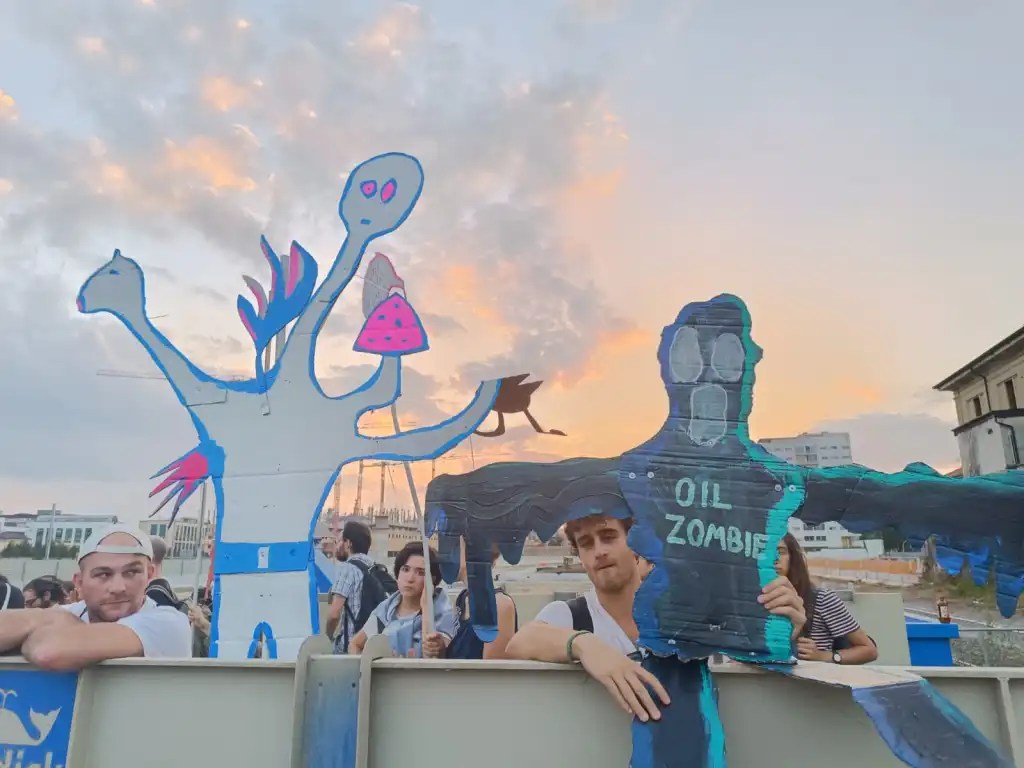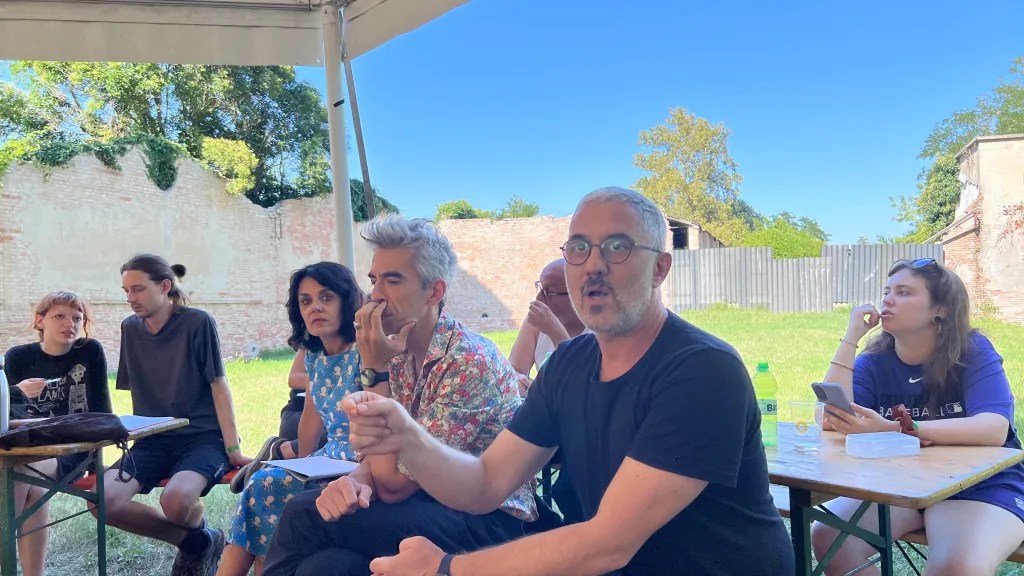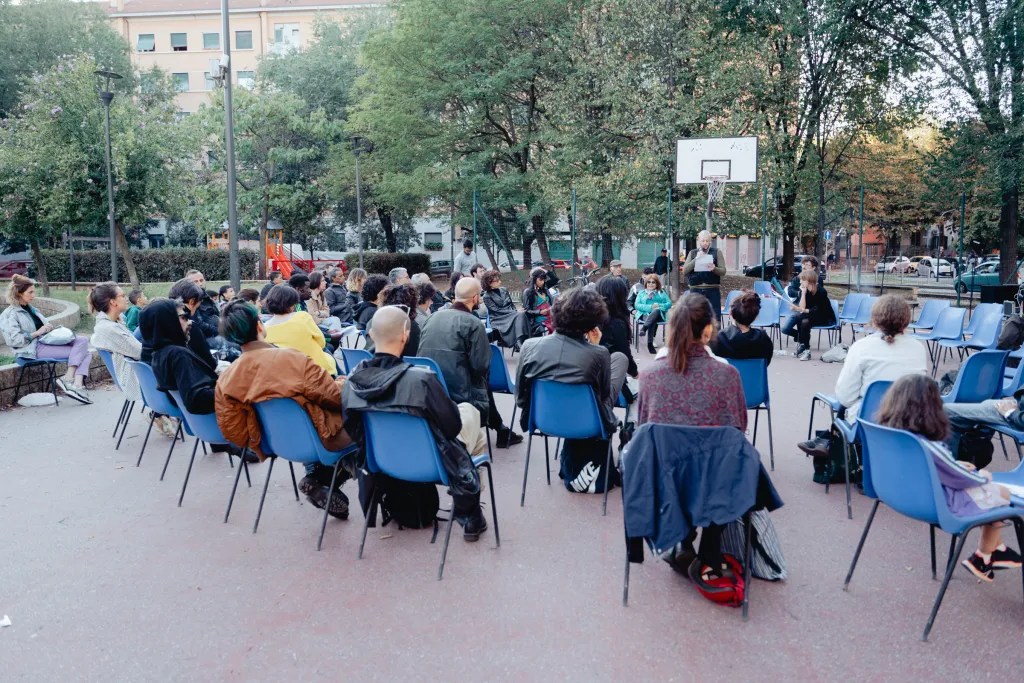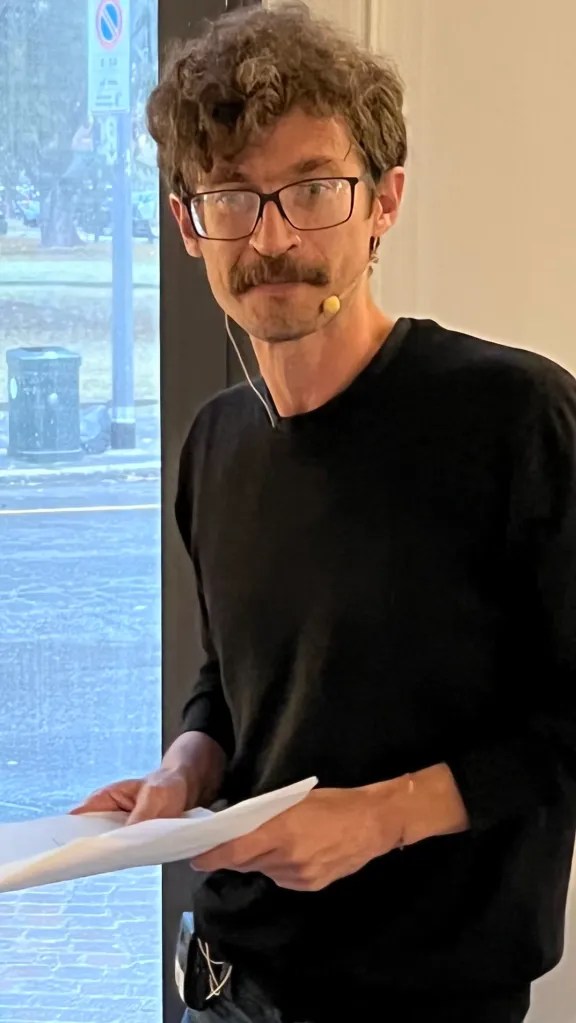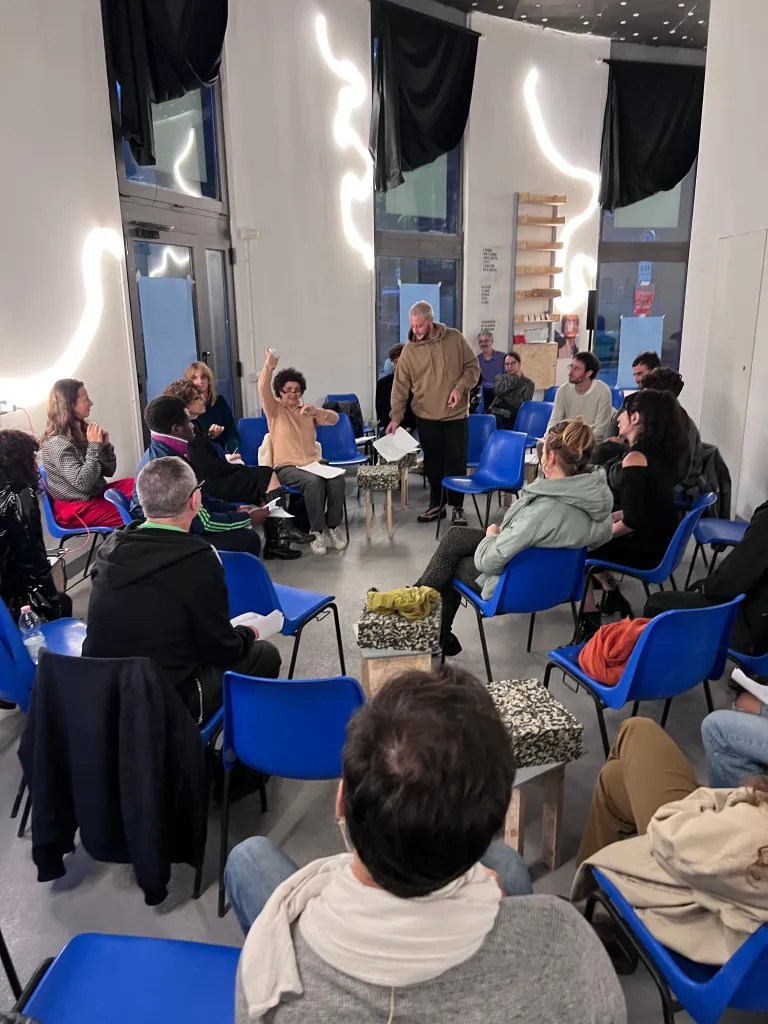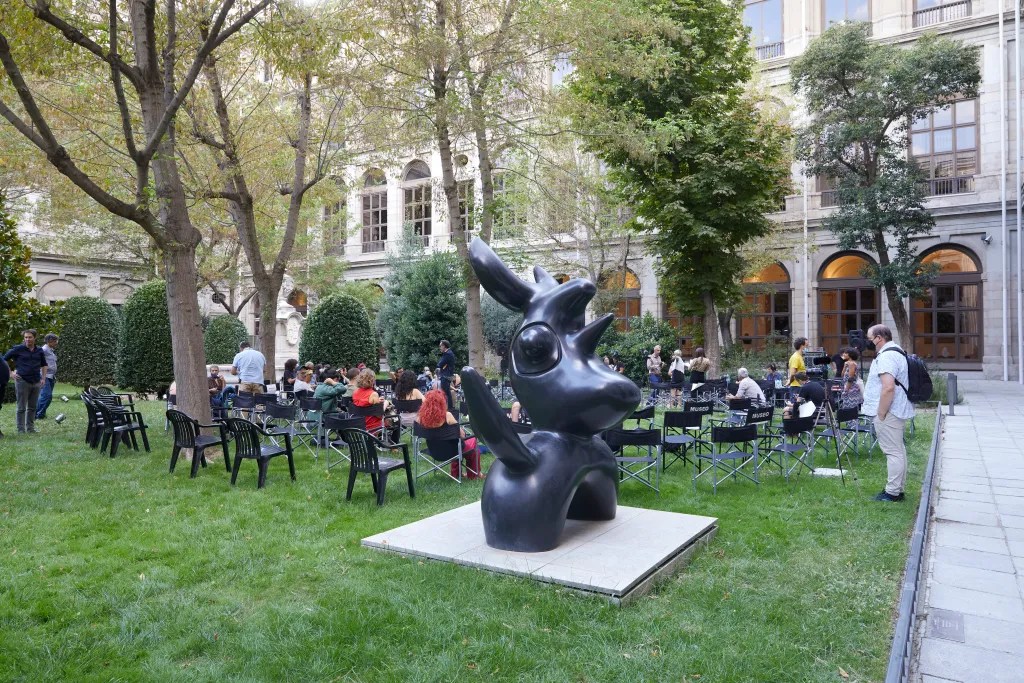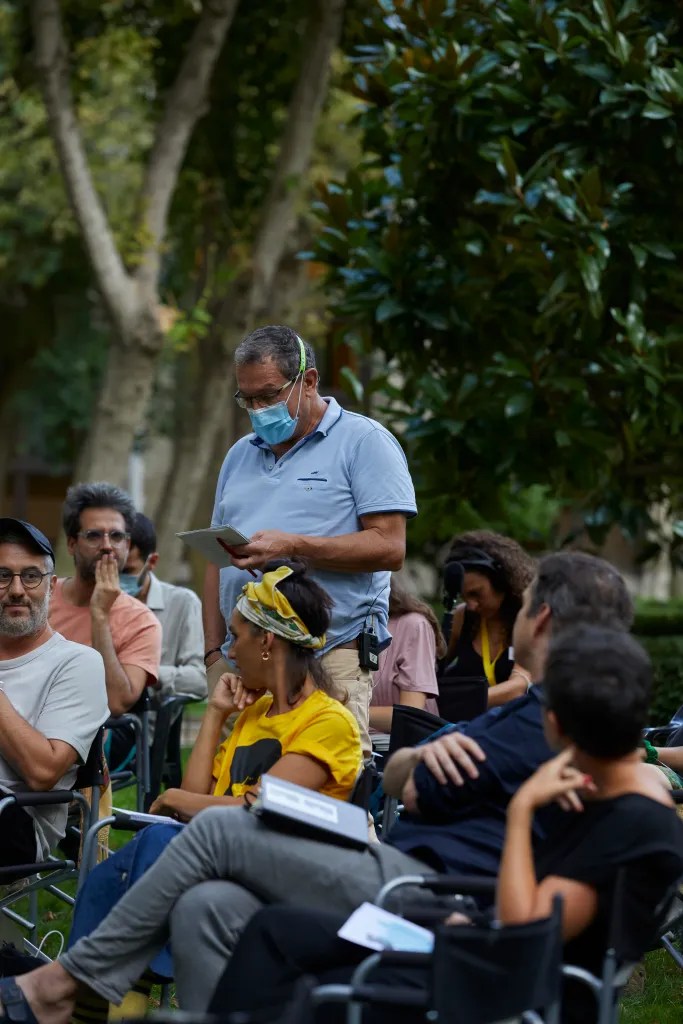Image WHO
translation by Gabriella Riccio
Do we change, now? It will probably always be worse: the techno-authoritarian drift
Coronavirus management risks dragging everyone into techno-authoritarianism: a social life awaits us in which we are controlled every move we make. Through GPS, cell phones, cameras in public spaces and streets it will be possible to understand if we really respect the rules of social distancing. At first they will tell us that their data collection will respect anonymity and that it will be performed “only” to understand mass behavior. Then they will come to individual sanctions and integrated ranking systems. Those who are unemployed will have to stay at home or go shopping at the most, only those with a job will be allowed to move or take a plane.
If we have a fever a sensor will prove it for us, and it will directly communicate it to the person who is processing the complete picture of our profile.
Individual biometric data, data on our movement, data on our economic situation, data on our sleep and our free time, will transform society and the way it is managed, highlighting the social areas to support and the areas to sacrifice.
This is what awaits us after Covid-19, this is how states and markets are thinking of reorganizing the crisis and the post crisis, or the permanent infra crisis. This is the toolbox for the bio-politician at the end of the 20th century.
Those who govern us are now turning to those tools. In the past ten years, perhaps China was the boldest in testing a pervasive and data driven governmental social control program called Social Credit System, Silicon Valley practiced with Cambridge Analytica piloting two or three elections quite successfully, but they were only test benches. Society must be administered through data we can collect. Data must be as accurate and precise as possible. Doing so risks may decrease. Whose risks? Market, growth and productivity risks. If there are too many sick people, factories’ assembly lines must slow down and start a few less planes. If there are few sick people, it’s possible to push for a moment on the accelerator. If there are too many riots among the poor, better to increase welfare a little. If nobody complains old people in hospices can silently crack, people who are no longer productive and only represent a burden on pensions.This crisis is not originated by banks and financial system, but from the real economy. That’s the reason why the reaction will not simply imply the financial system to vampirize state welfare, real estate investments and working conditions. What awaits us is something even worse: direct selective control over populations and resources. Financial activity will no longer be sufficient: what capital will need is a designed extermination of lives and control over resources.
This probably is the real news after the advent of the virus: biopolitical control based on data analysis will not only be functional to a neoliberal agenda, but it will be aimed at a Malthusian program of selective extermination mixed to a biotechnological and military control of lives and natural resources on a global scale.
The Things out of fashion
This scientific use of data to administer the “factory-society” will be the neoliberal bi-partisan response to COVID-19. I believe it will imply the principle of selecting the unnecessary: the ones who are considered useless and weak. Those who will apply this principle will de facto be more selective than those who declared themselves openly fascist, nationalist or than those who are eager to gain full powers. It will be the triumph of the modernist project conceiving society as a designed machine of production capable of extracting value from our lives and resources to accumulate profits.
I call it “out of fashion” because this tired political class imagery is inspired by those great science fiction movies from the 80s and 90s until getting to the first series of Black Mirror ten years ago. I don’t think I’m being too pessimistic by saying that this is what will most likely happen.
On the contrary, what we are interested in is something else: we are interested the possible not in the probable. The probable is the result of a calculation where costs and benefits are optimized without questioning the existing paradigm. The point is to change the rules of the game, instead of simply to minimize losses.
We are the heretical daughters and sons of this generation. For us this stuff is out of date. We see through different eyes. We refuse to be reduced to numbers that count for an interest rate, we must be able to look beyond data, profiles and brownie points, we are much more than computing power.
If the future awaiting us all is data driven, the point is not simply to behave well and dynamically obey the rules of social distancing, the point is to understand which political model are these rules functional to? If the only attempt is to minimize life losses to guarantee the economic model that led us to this crisis with a minimum of profit then the right thing to do is to go on strike. We are by far beyond this techno-fetishist dream of controlling nature, growth and production.
The radical imagination
We like profiles, we like curves and we even know how to read them. We like softwares, we like sensors and we also know how to code them. We like to set the alarm clock and let a machine take care of what to do. We are that generation that grew up with algorithms and screens in place of dolls and toy cars. We played, loved, used upside down those tools, we threw against the wall artificial intelligence, plastic things, touch screens and metal detectors.
We are not against computers and data, but we rebel against the all too human and porn-patriarchal dream of reducing everything to a toy for control in the hands of increasingly impotent people.
Now we really understand what it means to be deeply powerless when we open the door and feel the fear of dying breeze. We are the ones who do not want to die and do not want to kill their loved ones.
What we really care about now is a radical change: a gesture of radical imagination, now!
The fundamental problem urging us to find an answer now without wasting any time is: what is useful? what do we really need now?
Remaining in the psychosis of the emergency we are only increasing anxiety and making more and more mistakes. What is going on is real, it is no fantasy. People are really dying of a virus that has made the leap in species and which we have difficulty controlling.
The theme of the construction of the self is linked to our capability to accept that the other is not something to be controlled with hysteria, instead it is something to be understood. When Donna Haraway says that only from some concepts we can think of other concepts, she suggests that everything is in a “specific relationship”. Now more than ever Our task is to stay in this understanding of respons-ability. If we let the car run in the direction in which it has accelerated so far we will go more and more towards the tragedy and hit against a wall.
The dream of one thing: some points for the big jump
1 / Universal Basic Income
Europe and the entire world are entering a crisis which will not be the same for everyone. Many will not be able to support themselves through their work. Precarious, self-employed, unemployed workers will not have enough income to survive.The present model of production based on support for banks and businesses to get work and wages moving again is not sustainable. It is extremely urgent to set the economic measures for this crisis differently. This is the time for a universal and unconditional basic income covering the whole population. It must be conceived as a non-emergency measure and a long-term plan. Anti-crisis economic financial coverage measures must not increase national debts. Europe must promote for its own survival common fiscal and economic policies for debt mutualisation in the creation of new liquidity instead.The same logic must be followed by bottom-up self-organised networks of alternative economic spaces, both at local and transnational level. We must develop networks based on mutualism, that do not generate credits or debits. They should manage common portfolios together, supporting access to goods and resources and the income for everyone.
2 / The Care
This pandemic made clear the scandal of neoliberal policies based on cutting welfare during the past thirty years. This pandemic has shown with all its evidence the centrality and importance of social reproduction. Everything now turns around the capacity of public health, of doctors, researchers and nurses, to cope with the saturation of the resuscitation rooms.
Now everyone can see that we are in the hands of those who are delivering goods and food to our homes, those who are cleaning offices and hospitals, those who are taking care of the elderly, those who are continuing to pick tomatoes in the countryside: they are mostly migrant workers. These are the ones who are suffering even more these days. These are the women suffering from domestic violence in their own homes. These are the ones who are taking care of the education of boys and girls now that schools are closed.
This is the social fabric that was always made invisible. This is the social fabric that was always denigrated and considered marginal in the eyes of economic and investment policies. The Unnecessary Ones! They are the ones who are saving our ass, right now that capitalism is in shock and does not know what to do. They are the ones who – as it has always been, stressing the “always”! – are doing everything possible to resolve the crisis.
This is where we have to start from again: from the bottom-up self-organized welfare, from the groups of activists who are bringing drugs and food to those who cannot move from home, from the new logistics of the doing in common, of the taking care of, of the doing what is useful.
We must claim to start from policies that put first public investment in health, in anti-violence centers, in education, in housing and social services.
We must immediately demand the regularization of all immigrants on European territory.
And if they have the courage to go back to make invisible the care, worse to criminalize it, or throw it into the hands of wild privatizations, we all should go on strike, because now more than ever if this social block stops, then the entire world will stop.
3 / The Cosmos
It is pointless to fight like superheroes for nature, for the forest and against climate change. We are at a very important political crossroad. Environment as an ecosystem and as a common good is at stake. The process of creating a common area cannot man as the hero or the guilty one on the one hand, and climate, biodiversity, plastics, robots on the other. We must get out of the paradigm of the modern era, based on a system of control, profit, sins and debts. Even in a Calvinist perspective made of self-flagellation and guilt, we continue to consider the Vitruvian man being the center of the universe. The new perspective, considering the ecosystem as a whole, can only represent the beginning of a new cosmogony, where human beings are not at the center of the universe, they are fighting with the forest and not in the forest. The human being is no foreign privileged body. The human being struggles together with biodiversity, together with air and together with water.
4 / The Digital Platforms
We must invent new digital platforms capable of taking away the monopoly of big capital platforms. After the 2008 crisis, large digital platforms took on the task of monitoring and determining social behavior. The pandemic future will increase the role of digital platforms in determining our social behavior. The only alternative to this concentration of power is to increase democratic control of social platforms, in the many possible ways placing them in the hands of democratic states. At the same time, we need to develop cooperative models of digital platforms. From knowledge archiving, to logistics, distribution, welfare services, food and energy chains, we must develop self-organized cooperative platforms that decentralize governance and federate reproductive and productive alliances.
We must promote a double movement: strengthen the role of democratic states in the development and control of digital infrastructures as a welfare and non-business oriented service, and, at the same time, develop cooperative and independent bottom-up platforms. Only one of these two directions can reveal to be weak or authoritarian, which is why we must promote their synergistic and coexistent proliferation.
5 / The Bodies
We are losing our bodies and the relationship between the bodies as we have known it until now. To claim a body means to escape the total digitalization of our interconnections. The speed of the optical fiber, the speed of transmission and production of information is not comparable to the transmission speed of our nervous system. If we saturate our perception at the speed of the optical fiber we will dissolve. Our body can only suffer, scream, go crazy, paralyze and dissolve, if it will be immobilized and connected most of the time to a wifi router.
To de-automate this process of digitizing our relationships and destroying our bodies, we need to build new rituals. New circuits for the making of relationships.
The creation of this body is an ecosystemic working: we need to build balanced complex systems as a refuge for all those scarcities and resources that are running out. Affectivities, mineral resources, sexuality, food, concepts, economies, artificial intelligence must weave together to build a new, monstrous and balanced social body.
6 / The Cultures
What is lacking the most in the digitalization of social life is cultural production. In the reclusive and digitized society, in the automated disciplinary society, what will fail most is knowing how to think. Museums, schools, universities, concert halls, cinemas, art spaces, research centers, libraries as conceived, designed and attended until now, no longer have a physical reason to exist.
Culture must reclaim a right of intermittence, being able to be the place to take distance, the epoché [ed. suspension] in an infected world, the convivial space to be able to sleep, to rest and to dream. Culture is the place where alterity is built. The right to sleep and to dream meaning the right to unplug from some of the forms that have so far doped and saturated the forms of artistic production.
The virus will perhaps make biennials, fashion week and all the great events that in recent decades characterized the enhancing creativity cycle by transforming culture itself into the major branch of the tourism industry and real estate market. Shortly said: we could only toast to their possible obsolescence. This is the moment to fill this void with an artistic production based on the long-term, the care, the integration with local and decentralized supply chains. A synergic perspective of the many artistic disciplines no more conceived as spectacle, but rather conceived as the research field and symbolic engine to dream of the world to come.
Italian version on Dinamopress















